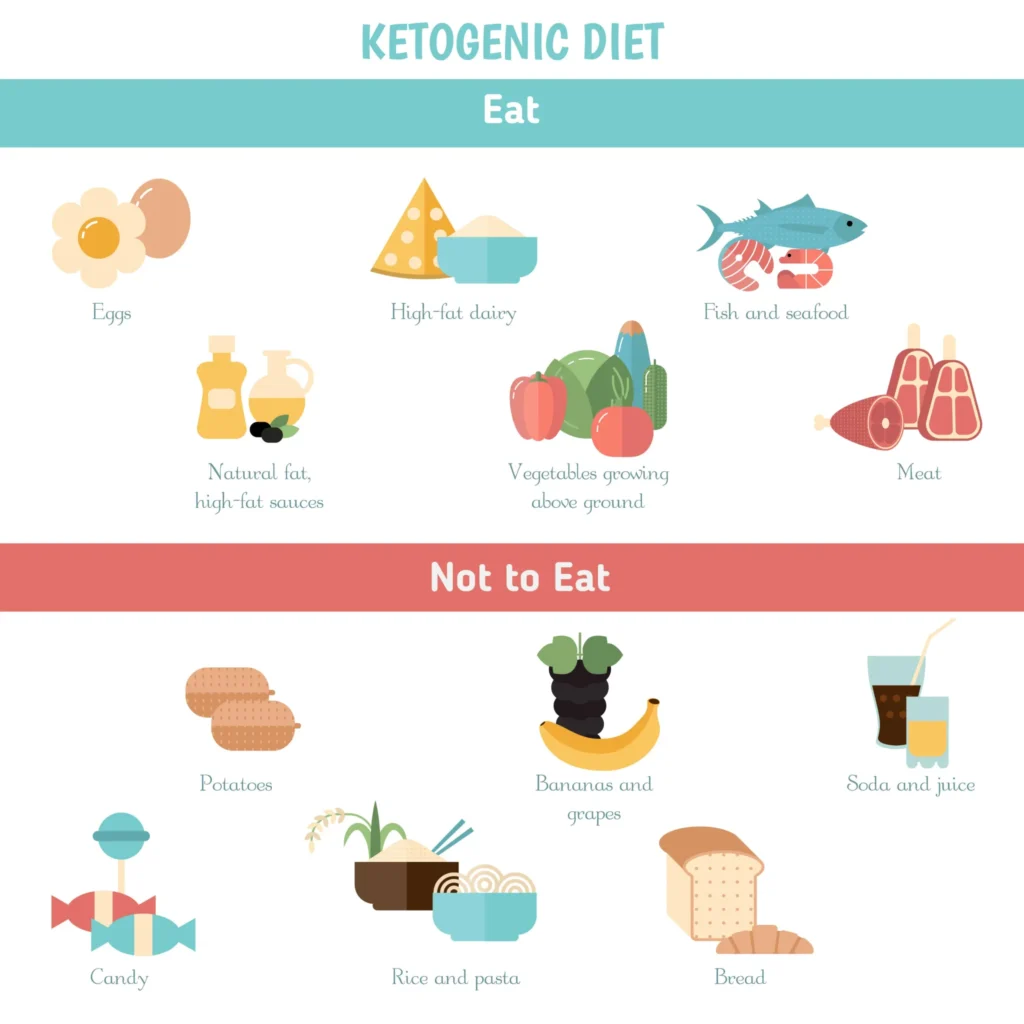The ketogenic diet has gained immense popularity in recent years as a way to lose weight, improve health, and increase energy levels. The diet focuses on consuming high amounts of healthy fats, moderate protein, and very low carbohydrates in order to put the body into a state of ketosis, where it burns fat for fuel instead of glucose. While the diet allows for a wide variety of foods, there are certain items that are best avoided to stay in ketosis and reap the full benefits of the diet. In this article, we will explore the top offenders that should be avoided on a keto diet, as well as answer frequently asked questions about the diet.
What Not to Eat on a keto diet
1. Sugar and sugary foods
One of the main principles of the keto diet is to limit carbohydrates, particularly those that come from sugar. This means avoiding foods such as candy, soda, cookies, cakes, and other sweets that are high in sugar. Even small amounts of sugar can quickly add up and kick you out of ketosis.
2. Grains and starches
Grains and starchy foods are high in carbohydrates, making them a poor choice for the keto diet. This includes foods such as bread, pasta, rice, cereal, and potatoes. These foods can easily derail your efforts to stay in ketosis and can lead to spikes in blood sugar levels.
3. Fruit
While fruit is generally considered healthy, it can be high in natural sugars that can hinder ketosis. Most fruits are too high in carbohydrates to be consumed on a keto diet, with the exception of small amounts of berries such as raspberries and blackberries.
4. Processed foods
Processed foods often contain hidden sugars, starches, and other additives that can sabotage your efforts to stay in ketosis. It’s best to avoid processed foods and opt for whole, unprocessed foods on a keto diet.
5. Alcohol
Alcohol is high in empty calories and can hinder weight loss efforts on a keto diet. Additionally, alcohol is quickly converted to sugar in the body, which can knock you out of ketosis. If you choose to drink alcohol on a keto diet, stick to low-carb options such as dry wines and spirits.
6. High-carb vegetables
While vegetables are an important part of a healthy diet, some vegetables are higher in carbohydrates than others. Vegetables such as potatoes, corn, and carrots should be limited on a keto diet, while low-carb options such as leafy greens, broccoli, and cauliflower are better choices.
7. Artificial sweeteners
While artificial sweeteners are low in carbohydrates, they can still have a negative impact on blood sugar levels and can hinder weight loss efforts on a keto diet. It’s best to limit or avoid artificial sweeteners on a keto diet and opt for natural sweeteners such as stevia or erythritol instead.
8. High-fat dairy
While dairy is a staple of the keto diet, it’s important to choose high-quality, full-fat dairy products. Low-fat or fat-free dairy products often contain added sugars and can hinder ketosis. Opt for full-fat options such as cheese, butter, and heavy cream on a keto diet.
Frequently Asked Questions About the keto diet
1. How long does it take to get into ketosis?
The time it takes to get into ketosis can vary depending on the individual and their level of carbohydrate restriction. Typically, it takes 2-7 days of following a strict ketogenic diet to enter ketosis.
2. Can I eat fruit on a keto diet?
While most fruits are too high in carbohydrates to be consumed on a keto diet, small amounts of berries such as raspberries and blackberries can be enjoyed in moderation.
3. Is it safe to stay on a keto diet long-term?
While the keto diet can be safe for most people in the short-term, it’s important to consult with a healthcare provider before embarking on a long-term ketogenic diet. Some individuals may experience negative side effects from prolonged ketosis.
4. Can I drink alcohol on a keto diet?
While alcohol can hinder weight loss efforts on a keto diet, low-carb options such as dry wines and spirits can be consumed in moderation.
5. What are the benefits of a keto diet?
The keto diet has been shown to help with weight loss, improve blood sugar control, increase energy levels, and reduce inflammation. Additionally, the diet has been used to treat certain medical conditions such as epilepsy and metabolic syndrome.
In conclusion, while the keto diet allows for a wide variety of foods, there are certain items that should be avoided to stay in ketosis and reap the full benefits of the diet. By avoiding sugar, grains, fruit, processed foods, alcohol, high-carb vegetables, artificial sweeteners, and high-fat dairy, you can stay on track with your keto diet and achieve your health and weight loss goals. Remember to consult with a healthcare provider before starting any new diet or making significant changes to your eating habits.
